Indigenous Governance Database
economic growth
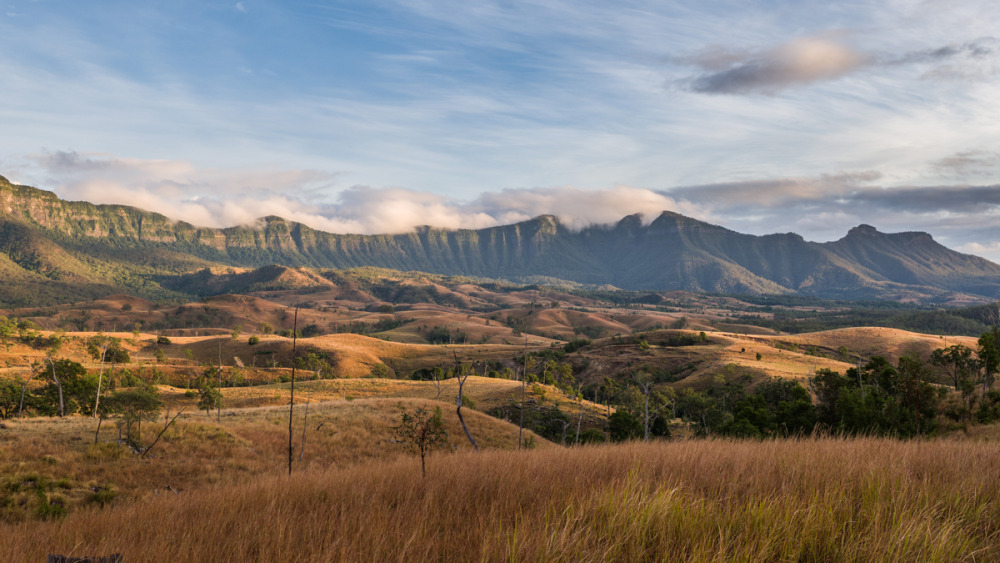
‘For the good of the Gugu Badhun people’: Indigenous Nation building, economic development and sharing as sovereignty
As part of an ongoing process of Indigenous Nation Building, Gugu Badhun Nation is engaged in developing an economy according to Gugu Badhun values. Rather than simply mimicking capitalism, the practice of visioning this economy begins with considering core cultural principles for the Nation.…
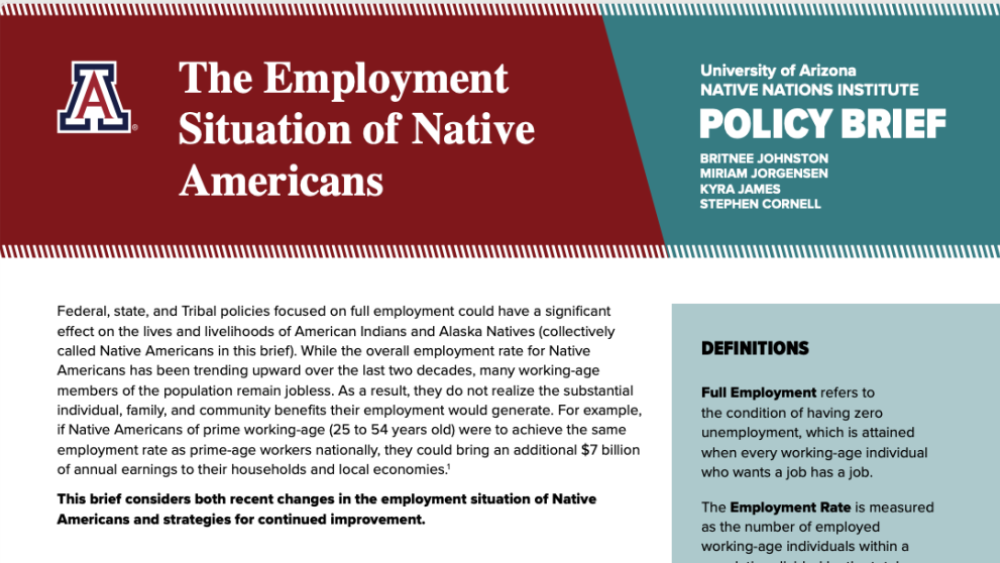
The Employment Situation of Native Americans
Federal, state, and Tribal policies focused on full employment could have a significant effect on the lives and livelihoods of American Indians and Alaska Natives (collectively called Native Americans in this brief). While the overall employment rate for Native Americans has been trending upward…
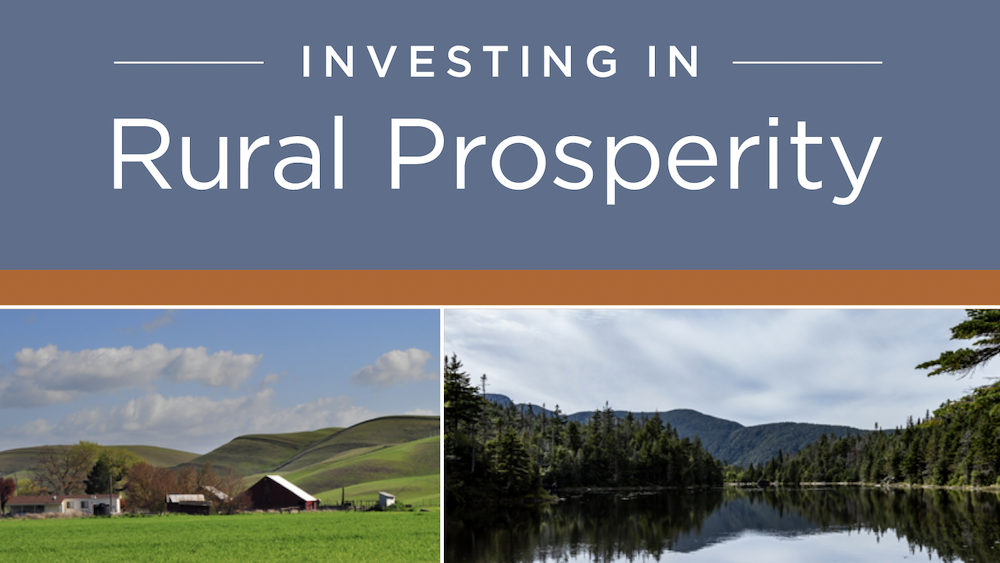
Investing in Rural Prosperity Chapter 7: Native America x Rural America: Tribal Nations as Key Players in Regional Rural Economies
The seventh chapter in Investing in Rural Prosperity, "Native America x Rural America: Tribal Nations as Key Players in Regional Rural Economies", outlines the diversity of Native nations, including with respect to governmental structure and economic opportunity. It also explores the history and…
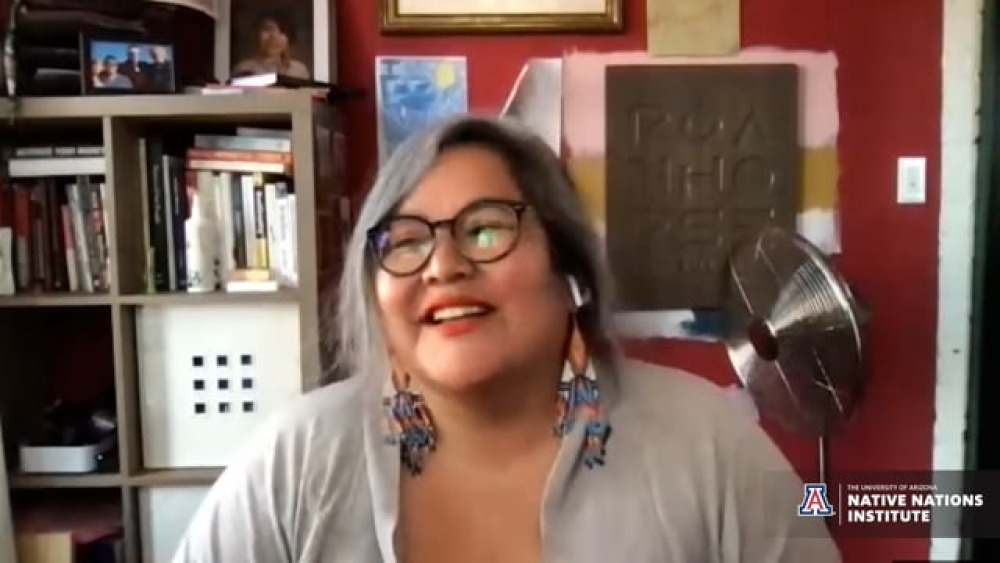
Vanessa Roanhorse Keynote Address: Native American Youth Entrepreneurship Program 2021
Vanessa Roanhorse (Navajo) is the CEO of Roanhorse Consulting, an Indigenous women-led think tank that co-designs wealth and power-building efforts that invest in Indigenous entrepreneurs. She is also the co-founder of Native Women Lead, a national organization dedicated to growing Native women…
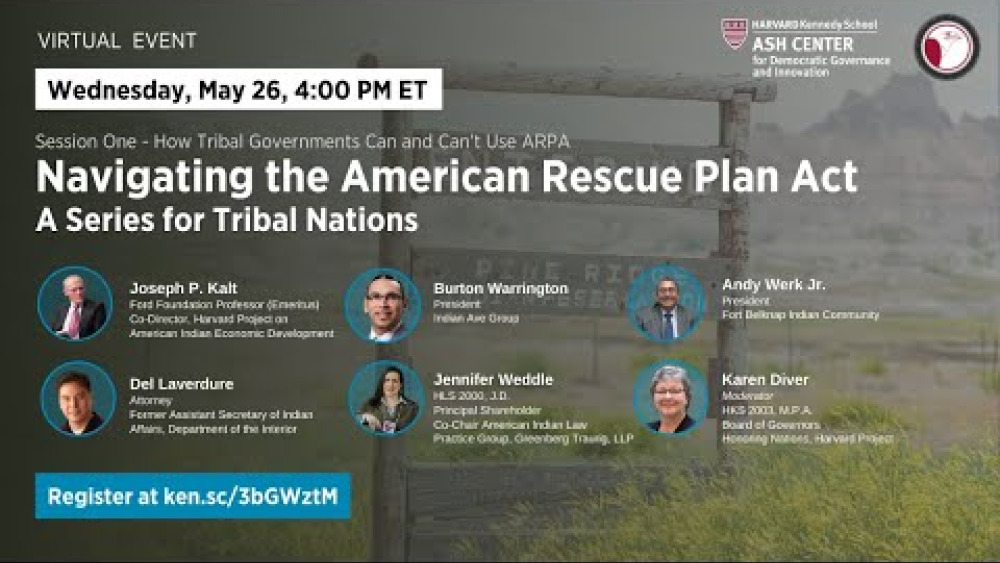
Navigating the ARPA: A Series for Tribal Nations. Episode 1: How Tribal Governments Can and Can't use ARPA
The American Rescue Plan Act (ARPA) provides the largest single infusion of federal funding into Indian Country in the history of the United States. More than $32 billion is directed toward assisting American Indian nations and communities as they work to end and recover from the devastating COVID-…

Business Enterprises Toolbox
What do successful businesses and economic development look like in a Native nation? Find out with case studies and research reports on successful and awarded efforts from around the world. Understand how to build and implement business codes, launch your own Limited Liability Company (LLC) and a…
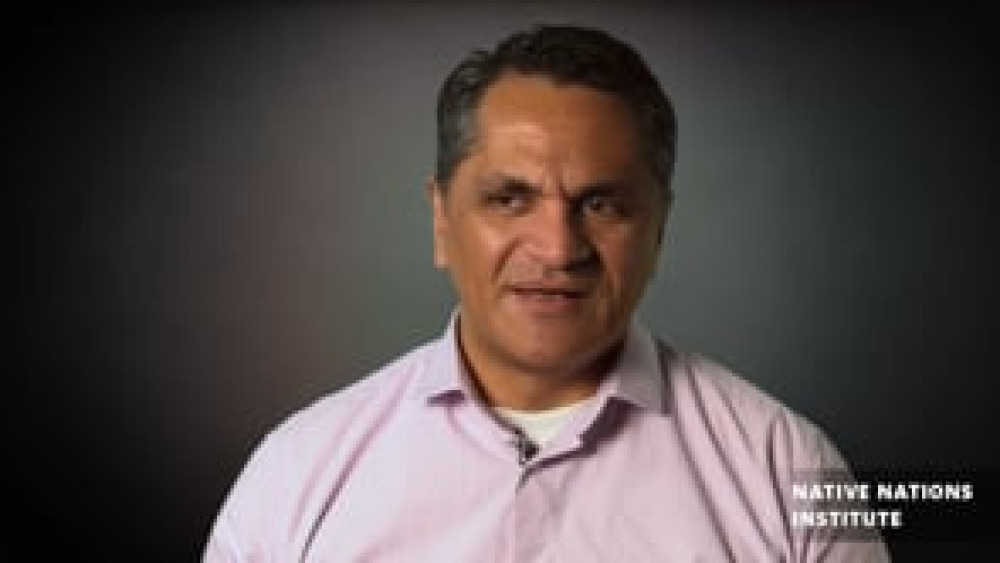
Robert Joseph: History of Maori Governance and Self-Determination
In this interview, Māori barrister and Senior Lecturer at The University of Waikato Te Whare Wānanga o Waikato, Dr. Robert A. Joseph offers his expert analysis of governance and law through the historical perspective of Māori self-governance. Dr. Joseph gives a summary of the complexities…
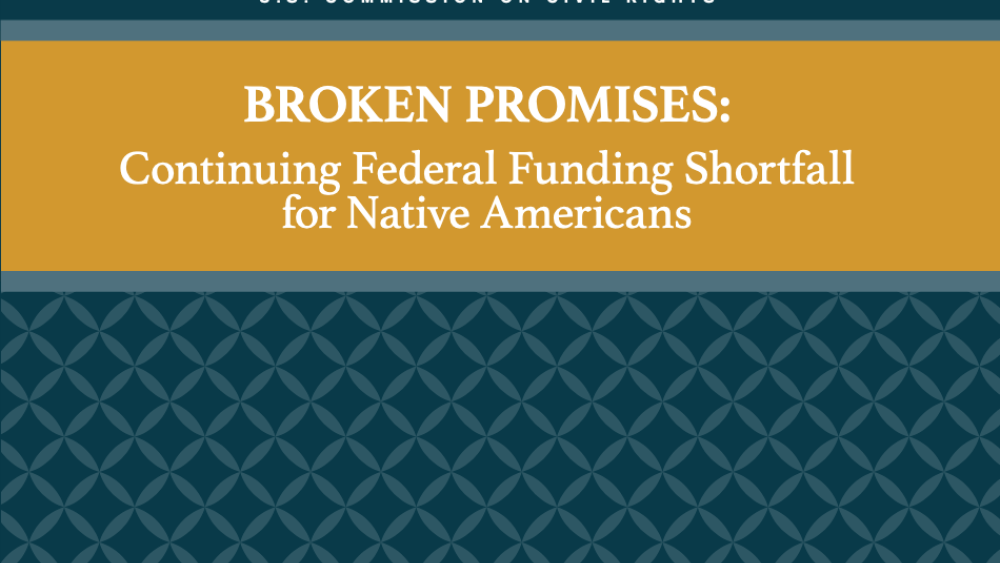
Broken Promises: Continuing Federal Funding Shortfall for Native Americans: Briefing Report
Since our nation’s founding, the United States and Native Americans have committed to and sustained a special trust relationship, which obligates the federal government to promote tribalself-government, support the general wellbeing of Native American tribes and villages, and to protect their lands…

Dr. Karen Diver: Indigenous autonomy is the way forward
Dr. Karen Diver spoke at ANZSOG's Reimagining Public Administration conference on February 20, as part of a plenary on International perspectives on Indigenous affairs. The Native American tribal leader and former adviser to President Obama, said that Indigenous communities had been inexorably…

Access to Capital and Credit in Native Communities: A Data Review
As the second part of a two-part follow-up to the NALS, this report uses a range of datasets to document the evolution of Native Communities’ capital access since 2001. Its three main sections summarize data describing access to capital and credit for Native consumers, Native business owners, and…

Access to Capital and Credit in Native Communities
This report emerges from the Community Development Financial Institution (CDFI) Fund’s commitment to helping Native Communities develop through increased access to capital. The ideas presented are grounded in an understanding of current economic conditions in Native Communities and in established…

Native Nations and Arizona's Economy
American Indians are disproportionately represented among the low-income residents of the state of Arizona. Across the United States, including in Arizona, reservation economies are growing at a fast pace but low starting points for growth mean that it will take years for American…
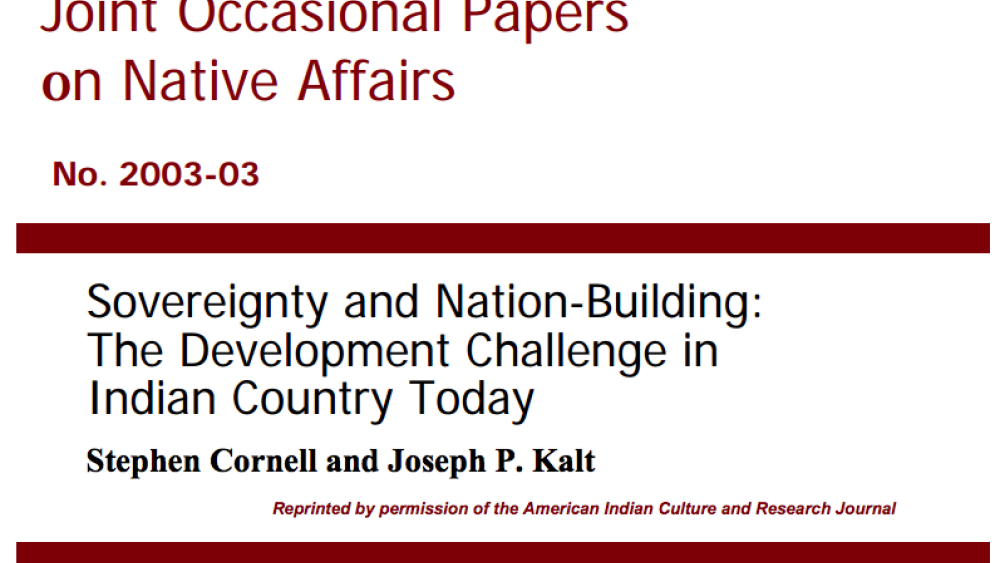
Sovereignty and Nation-Building: The Development Challenge in Indian Country Today
The Indian nations of the United States face a rare opportunity. This is not the occasional business opportunity of reservation legend, when some eager investor would arrive at tribal offices with a proposal guaranteed to produce millions of dollars for the tribe--although such investors still…
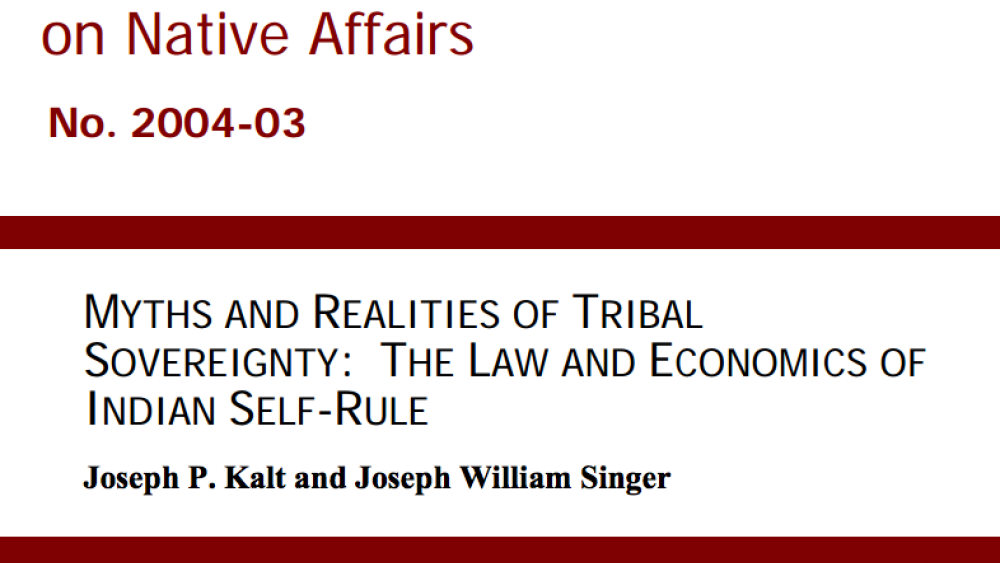
Myths and Realities of Tribal Sovereignty: The Law and Economics of Indian Self-Rule
The last three decades have witnessed a remarkable resurgence of the American Indian nations in the United States. The foundation of this resurgence has been the exercise of self-government (sovereignty) by the more than 560 federally- recognized tribes in the U.S. In this study, we explore legal…
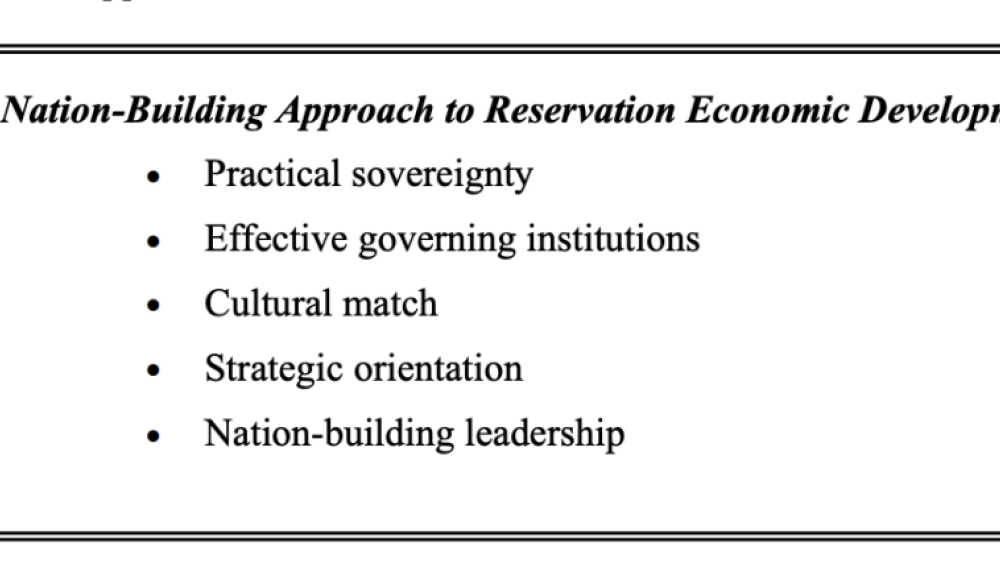
Two Approaches to Economic Development on American Indian Reservations: One Works, the Other Doesn't
As much of the world knows, American Indian nations are poor. What much of the world doesn't know is that in the last quarter century, a number of these nations have broken away from the prevailing pattern of poverty. They have moved aggressively to take control of their futures and rebuild their…
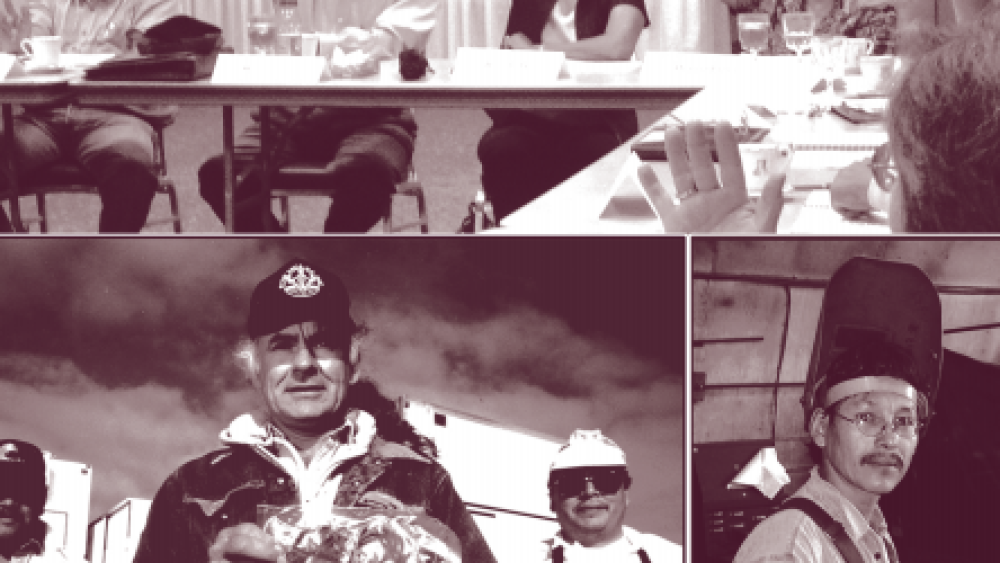
What Makes First Nations Enterprises Successful? Lessons from the Harvard Project
Some enterprises owned and operated by Native nations do well, and others don't. Of course this is true of all businesses--some succeed and others fail--and there are numerous reasons why. After all, building a successful business is a complex and challenging task. But in these and many other cases…

Determinantes del Éxito del desarrollo En las Naciones nativas de los Estados Unidos (Spanish)
La pobreza de los indígenas norteamericanos, especialmente los que viven en las reservaciones, han preocupado ambos políticos Indígenas y Federales por más de un siglo. Después de la fase de la fabricación del tratado y del establecimiento del sistema de reservación, las políticas federales para…

Determinantes de sucesso no desenvolvimentodas nacoes Indígenas dos Estados Unidos (Portuguese)
A pobreza dos indígenas norte-americanos, principalmente daqueles que vivem nas reservas, tem preocupado os responsáveis pela definição de políticas indígenas e federais por mais de um século. Depois da fase de negociação dos tratados e do estabelecimento do sistema de reservas, as medidas…
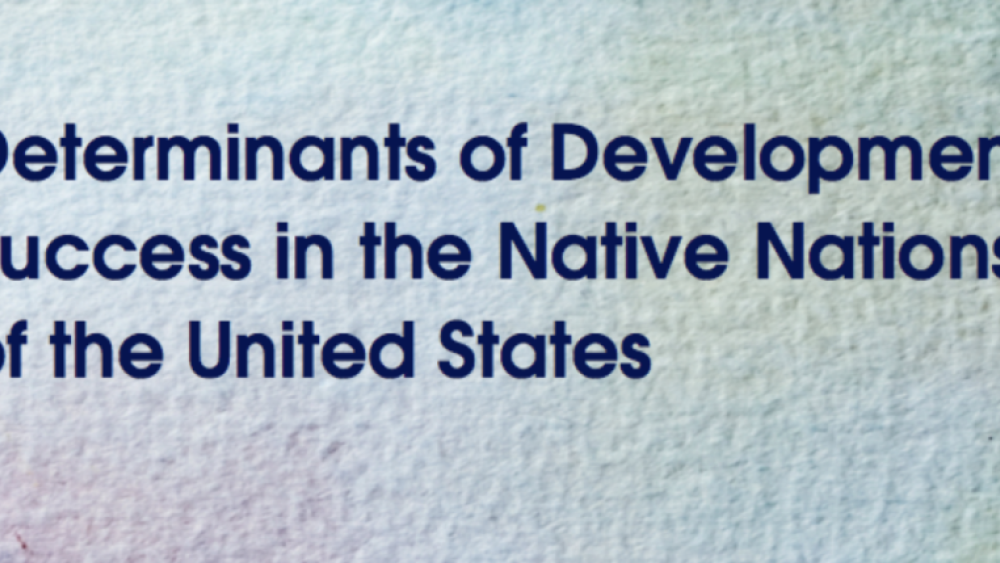
Determinants of Development Success in the Native Nations of the United States (English)
The poverty of indigenous North Americans, especially those living on reservations, has concerned Indian and federal policymakers for more than a century. After the treaty making phase and the establishment of the reservation system, federal policies to address Native poverty vacillated between…
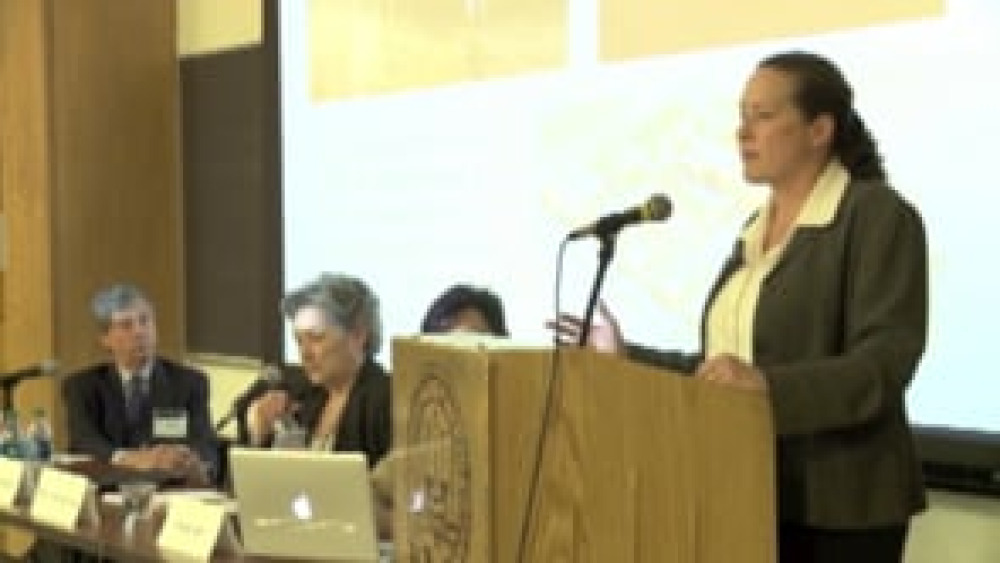
Good Native Governance Plenary 2: The Cutting Edge of Economic Development in Indian Country
UCLA School of Law "Good Native Governance" conference presenters, panelists and participants Miriam Jorgensen, Robert Miller, and Sherry Salway Black discuss economic research in Indian Country. This video resource is featured on the Indigenous Governance Database with the permission of the …
